Conheça o júri do programa Kaá, que vai selecionar quatro artistas para um mês de residência na zona rural de Porto Alegre. A comissão é composta por agentes culturais nacionais e internacionais com distintas formações e ampla vivencia no meio artístico.
Meet Kaá’s jury, which will select four artists for a one-month residency in the rural area of Porto Alegre, South Brazil. The committee is composed bynational and international cultural agents with different backgrounds and wideexperience in the artistic scenes.

A décima e última integrante do júri de Kaá é a portuguesa Luísa Especial, fundadora e diretora da residência AiR 351 de Cascais, em Portugal.
Como investigadora e curadora independente, Especial tem colaborado com com diversas instituições: Residency Unlimited, Fundação Calouste Gulbenkian, Colecção de Fotografia Novo Banco, Culturgest, Museu de Serralves, Museu Berardo, Guimarães Capital da Cultura, entre outras. Foi co-curadora da exposição de Gary Hill no MAAT, o Museu Arte Arquitetura Tecnologia de Lisboa, em 2018 e da exposição Segunda Natureza no mesmo museu, em 2016 e também no Kreeger Museum em Washington, em 2018. Tem organizado projetos, implementado parcerias e colaborado com artistas em residência no seio de organizações sem fins lucrativos, tais como Residency Unlimited, Carpe Diem Arte e Pesquisa e Atelier Concorde. Fez a coordenação editorial e seleção de textos da publicação A Fotografia, Modo de Usar, da editora Documenta, acerca da fotografia contemporânea em Portugal. É Doutora em Sociologia da Arte, Mestre em Estudos Curatoriais e Licenciada em História da Arte, com o apoio de duas bolsas da FCT Fundação para a Ciência e para a Tecnologia. Membro da secção portuguesa da AICA.
The tenth and last member of the jury of Kaá is the Portuguese curator Luísa Especial, founder and director of the residence AiR 351 at Cascais, in Portugal.
As an independent curator and researcher, Luísa has collaborated with several institutions such as Residency Unlimited, the Calouste Gulbenkian Foundation, Contemporary Photography Collection /Novo Banco, Culturgest, Serralves Museum, Berardo Museum, Guimarães Capital of Culture, among others. Luísa has co-curated Gary Hill´s exhibition at MAAT (Museum of Art, Architecture and Technology, 2018) and she has co-curated the exhibition Second Nature at the same museum (2016) and at The Kreeger Museum in Washington (2018). Luísa was the Editorial Coordinator and Text Editor for Photography, a User ́s Manual (ed. Documenta), an extensive publication on Portuguese Contemporary Photography. In the past, she has organized projects, implemented partnerships and supported the artists in residence while working in non-profit organizations, such as Residency Unlimited, Carpe Diem Art and Research and Atelier Concorde. Luisa holds a PhD in Art Sociology, a master’s degree in Curating Studies and a degree in Art History and benefited from two grants from the FCT – Fundação para a Ciência e para a Tecnologia for the development of both thesis. Luisa is a member of the Portuguese section of AICA – International Association of Art Critics.
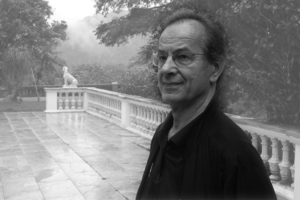
Jacques Leenhardt, filosofo e sociólogo, é Diretor de Estudos na École des Hautes Études en Sciences Sociales (Paris, França). Presidente de honra da Associação Internacional de Críticos de Arte (AICA). Critico de arte, Leenhardt criou em 1987 o Crestet Centro de Arte (França) instituição dedicada à arte e natureza. Curador de exposições no Brasil e na França (Iberê Camargo, J-B Debret, Seydou Keita, ecologia etc). Publicou vários livros e ensaios sobre literatura, artes plásticas, paisagismo.
Jacques Leenhardt, philosopher and sociologist, is the Studies Director at the École des Hautes Études en Sciences Sociales (Paris, France). President of honor at the International Association of Art Critics (AICA). Art Critic, Leenhardt has created in 1987 the Crestet Center of Art (France) an institution dedicated to art and nature. Art curator in Brazil and France (Iberê Camargo, J-B Debret, Seydou Keita, ecology etc.). He has published several books and essays on literature, visual arts, landscaping.
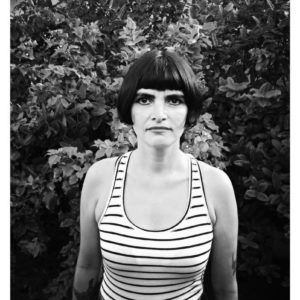
Kaá tem o prazer de anunciar a artista e curadora colombiana Maria Isabel Rueda.
Rueda atualmente gerencia e trabalha como curadora artística no La Usurpadora, em Puerto Colombia. Ela também é editora da revista independente Tropical Goth. Rueda é bacharel e mestre pela Universidade Nacional da Colômbia e lecionou na Universidade Nacional e na Universidade Jorge Tadeo Lozano, em Bogotá, e na Faculdade La Salle, em Barranquilla. Foi co-curadora de espaços independentes como El Bodegón e La Residencia, em Bogotá.
Ao longo de mais de vinte anos, Rueda criou um corpo singular de trabalhos que entrelaça o Gótico com o Tropical. Nas obras de Rueda, o gótico se refere a imagens preto e branco altamente estilizadas e melancólicas que, quando introduzidas no ambiente tropical, aparecem como absurdas, transportando o chiaroscuro romântico de suas fontes setentrionais e enquadrando-o em um contexto geográfico completamente diferente. A forma com a qual Rueda conceitua “Tropical Gothic” continuamente ressoa com essas duas sensibilidades distintas, atraindo o espectador para além do puramente material e pragmático; entender como os rios, as plantas, os fios, os tecidos e a coca estão todos imbuídos de sua própria força espiritual, mesmo que essa força pareça estar além do que muitos hoje parecem capazes de entender. Rueda passou a maior parte de seus anos de formação nas cidades. Hoje ela vive no litoral e, através de seu trabalho curatorial, esforça-se para manter uma conexão profunda com o ambiente a fim de não perder a capacidade de se comunicar com pessoas que veem o mundo de forma diferente do que é agora convencional.
Kaá welcomes the Colombian artist and independent curator Maria Isabel Rueda.
She currently manages and works as artistic curator at La Usurpadora in Puerto Colombia. She is also the editor of the independent magazine, Tropical Goth. She holds aBFA and MFA from National University of Colombia. She has taught at National University, Jorge Tadeo Lozano University in Bogotá and La Salle College in Barranquilla. She was co-curator of independent venues like El Bodegón and La Residencia in Bogotá.
Over more than twenty years, Rueda has created a singular body of work that intertwines the Gothic with the tropical. In Rueda´s works, the Gothic refers to highly stylized and melancholy black and white imagery, which, when introduced into the tropical environment, appears as absurd, thus transporting romantic chiaroscuro from its Northern sources and framing it within a completely different geographical context. Ultimately, Rueda´s conceptualization of “Tropical Gothic” continually resonates with these two distinct sensibilities, compelling the viewer beyond the purely material and pragmatic; to understand how the rivers, plants, threads, textiles, mochilas and coca-as well as the underlying mournful weeping-are all imbuedwith their own spiritual force, even if this force seems to lie beyond what many today seem capable of understanding. Rueda spent much of her formative years in cities. Today she lives by the sea, and through her curatorial work she strives to maintain a deep connection to her environment, to not lose the capacity to communicate with people who see the world very differently from what is now conventional.

Ane Rodríguez Armendariz traz ao júri do projeto Kaá sua larga experiência em instituições culturais espanholas. Formada em Jornalismo, foi nomeada Diretora Cultural de Tabakalera, em San Sebastián, na Espanha, para estabelecer o projeto cultural na antiga fábrica de tabaco que reabriu como o Centro Internacional para a Cultura Contemporânea em setembro de 2015. Sua experiência em instituições inclui a ARCO – Feira de Arte Contemporânea em Madrid (na qual foi responsável por programas de curadoria e galerias internacionais), o Museu de Arte Contemporânea de Castilla y León (MUSAC, onde foi coordenadora geral do museu em 2010), e Matadero Madrid, como parte da equipe de programação (2011-2012).Também fez parte da equipe Bienal Manifesta 5 em San Sebastian e foi colaboradora do Festival de Cinema de San Sebastian.
Ane Rodríguez Armendariz brings to Kaá’s jury her extensive experience in Spanish cultural institutions. Graduated in Journalism, she was appointed Cultural Director of Tabakalera to set up the cultural project at the former Tobacco factory that reopened reconverted into an International Center for Contemporary Culture in September 2015 in San Sebastian, Spain. Her experiencein Spanish art institutions includes the contemporary art fair in Madrid, ARCO, where she was in charge of curated programmes and international galleries; MUSAC, the museum of contemporary art of Castilla y León, where she was the general coordinator of the museum (2010), and Matadero Madrid, as part of the programming team (2011-2012). She was part of the Manifesta 5 Biennial team in San Sebastian and has also been a contributor at the San Sebastian Film Festival.
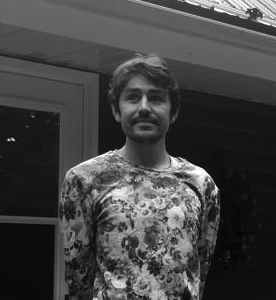
O suíço Richard Le Quellec participa do júri do programa Kaá e traz em sua bagagem diversas experiências em espaços e iniciativas que promovem desenvolvimento cultural e social a partir de situações de troca, redes e compartilhamento. Le Quellec é artista visual e desenvolvedor cultural formado pela Universidade de Arte e Design de Genebra. Desde 2007, é motivado pela influência de práticas culturais no desenvolvimento social e político da cidade. Consequentemente, seus envolvimentos geraram espaços de projetos e eventos de longo e curto prazo. Le Quellec foi membro da Union of Self-managed Cultural Spaces (UECA) de 2007 a 2011 e membro do Committee of Artists and Cultural Developers (RAAC). É fundador e coorganizador da The Biennale des espaces d’arts indépendants e fundador da cooperativa cultural Ressources Urbaines. Com sede em Genebra, na Suíça, ele é o gerente de projetos da The Embassy of Foreign Artists (EoFA), local onde artistas moram, trabalham, conduzem pesquisas e compartilham ideias.
Swiss Richard Le Quellec joins the Kaá’s jury and brings his experiences indifferent spaces and initiatives that promote cultural and social developmentfrom exchange, networking and sharing situations. Le Quellec is a visual artistand cultural developer with a degree at Geneva University of Art and Design(HEAD) in 2005. Since 2007, he is motivated by the influence of culturalpractices on the social and political development of the city. Consequently,his involvement has generated both long and short-term project spaces andevents. Richard was a member of the Union of Self-managed Cultural Spaces(UECA) from 2007 to 2011, and a member of the Committee of Artists and CulturalDevelopers (RAAC). He’s founder and co-organizer of The Biennale des espacesd’arts indépendants, and founder of the cultural cooperative RessourcesUrbaines. Based in Geneva, Switzerland, he is the project manager of TheEmbassy of Foreign Artists (EoFA), a place for artists to live, work, conductresearch, and share ideas.
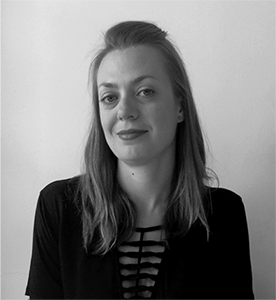
Professora e pesquisadora do Instituto de Artes da UFRGS, Bruna Fetter é Doutora em História, Teoria e Crítica de Arte (PPGAV/UFRGS). Foi pesquisadora visitante na New York University (2014/2015), possibilitado por bolsa Fulbright. Curadora de diversas mostra, entre 2006 e 2007 coordenou a equipe de produção executiva da 6a Bienal do Mercosul. É membro da Associação Nacional de Pesquisadores em Artes Plásticas, da Associação Brasileira de Críticos de Arte e da Associação Internacional de Críticos de Arte. Coautora do livro “As novas regras do jogo: sistema da arte no Brasil” (Editora Zouk, 2014), colaborou nas publicações “Artes visuais – ensaios brasileiros contemporâneos” (org. Fernando Cocchiarale, André Severo e Marília Panitz, FUNARTE, 2017), “Práticas contemporâneas do mover-se” (org. Michelle Sommer, Circuito, 2015) e “A palavra está com elas: diálogos sobre a inserção da mulher nas artes visuais” (org. Lilian Maus, Panorama Crítico, 2014).
Professor and researcher at the Art Institute at UFRGS, Bruna Fetter holds a PhD in ArtHistory, Theory and Criticism (PPGAV/UFRGS). She was a Fulbright VisitingResearcher at New York University (2014/2015) as part of her PhD research. Shecurated several shows and, between 2006 and 2007, coordinated the executiveproduction team of the 6th Mercosur Biennial. She is a member of ANPAP(Brazilian Association of Visual Arts Researchers), ABCA (Brazilian Associationof Art Critics) and AICA (International Association of Art Critics). She is aco-author of the book “The new rules of the game: the art system inBrazil”, published in 2014 by Zouk. She also collaborated in thepublications “Visual arts – Brazilian contemporary essays” (org.Fernando Cocchiarale, André Severo and Marília Panitz, FUNARTE, 2017),”Contemporary practices of moving” (org. Michelle Sommer, Circuito,2015) and “The ladies have the floor: dialogues on the insertion of womenin the visual arts” (org. Lilian Maus, Panorama Crítico,2014).

Michelle Sommer integra o júri do programa Kaá e traz à comissão sua experiência no ensino,pesquisa, crítica e curadoria em artes visuais. É pós-doutoranda em Linguagens Visuais na Escola de Belas Artes da Universidade Federal do Rio de Janeiro,doutora em História, Teoria e Crítica de Artes pela Universidade Federal do Rio Grande do Sul com estágio doutoral junto à University of the Arts London /Central Saint Martins / na área de estudos expositivos. É mestre em Planejamento Urbano e Regional e arquiteta e urbanista. Em 2017 foi co-curadorada exposição ‘Mário Pedrosa: de la naturaleza afectiva de la forma’ no Museu Reina Sofia, em Madri, que obteve o prêmio destaque pela curadoria da exposição pela ABCA – Associação Brasileira de Crítica de Arte em 2018. É autora de diversos livros e contribui regularmente para publicações nacionais e internacionais e projetos de artes visuais em formatos diversos.
Michelle Sommer joins Kaá’s jury and brings to the committee her experience in teaching, research, criticism and curatorial projects in visual arts. She is a postdoctoral researcher in Visual Languages at School of Fine Arts at the Federal University of Rio de Janeiro, PhD in History, Theory and Criticism of Arts at the Federal University of Rio Grande do Sul, with PhD internship at the University of the Arts London, Central Saint Martins, in Exhibitions Studies. She is an architect and holds a master degree in Urban and Regional Planning. In 2017 she was co-curator of the exhibition ‘Mário Pedrosa: de la naturaleza afectiva de la forma’ at the Reina Sofia Museum in Madrid, which won the prize for Curatorship by the ABCA – Brazilian Association of Art Critics in 2018. Author of several books, she contributes regularly to national and international publications and visual arts projects in various formats.
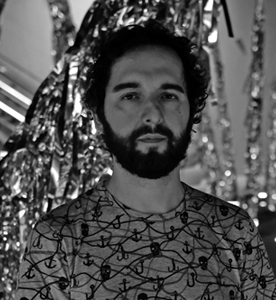
Denis Rodriguez é artista visual, curador e produtor cultural. Mestre em História, Teoria e Crítica de Arte pela Universidade Federal do Rio Grande do Sul, graduado em Fotografia pela Universidade de Westminster, Londres, e bacharel em Direito pela Universidade de São Paulo. Foi gestor e coordenador do programa de residências do espaço independente Galeria Península, Porto Alegre. Em 2018, foi curador visitante do programa El Ranchito do Matadero, Madrid. E em 2017, artista visitante do KCAI, Kansas City Art Institute, em Kansas City.
Realizou as exposições individuais: Aprendendo com o Barro, Centro Cultural São Paulo, São Paulo, 2019-2018; Pariwat Jenipapo, Fotoativa, Belém do Pará, 2017-2016 e Água Viva, Galeria Península, Porto Alegre, 2015. Algumas exposições coletivas selecionadas: 2018, Open Spaces, curadoria Dan Cameron, Kansas City; 2018, Continuum, curadoria Henrique Menezes, Fundação Iberê Camargo, Porto Alegre; 2017, The Fountain that Crossed the Line, KCAI Crossroads Gallery, Kansas City; 2017, Curucu no Parquet, curadoria Elaine Tedesco, Pinacoteca Barão de Santo Ângelo, Porto Alegre; 2017, À Sombra da Cruz (Performing Christianity), curadoria Gala Berger, Casa W, Porto Alegre, Brazil; 2016, Waterscapes, curadoria Jesse Bandler Firestone, FATVillage, Miami; 2016, Maelström (or Portuguese title: Preto Sobre Preto Em Fogo), Pera de Goma, Montevidéo, Uruguay; 2014, Farol, vitrine MASP, São Paulo.
É autor e organizador dos livros: Não Sou Daqui, Nem Sou de Lá. Gestão, Curadoria e Residência Artística em Rede; PPPP – Programa Público de Performance Península; Corpo Presente; entre outros.
The work of contemporaryBrazilian artist Denis Rodriguez transformsgalleries and public spaces through participatory situations, actions andinterventions. Play, joy, entertainment are strategies to engage people in hisworks where participation raise political, cynical reviews of his surroundings andoftenly refers to the art system and its barriers to entry. Relationsbetween public and private, reality and simulation, control and ungovernability,environment and exhibition space are also present. Best known for hisinstallations and videos where water is an element that appears as medium and aform of speech, he crafts compositions that surprise in their associativepotential and walk the tightrope between intersectionality, social practice andform. Master’s degree in Art History, Theory and Criticism by UFRGS and mostvisibly as co-founder of the experimental Galeria Peninsula, Porto Alegre.
In 2018, he was visiting curatorof El Ranchito program by Matadero-Madrid. And in 2017, visiting artist atKansas City Art Institute, in Kansas City.
Recent and selected shows: Feb2019- Sept 2018, Aprendendo com o Barro(Learning from Mud), solo show, Centro Cultural São Paulo, São Paulo,Brazil; 2018, Open Spaces, curated byDan Cameron, Belger Arts Center, Kansas City, USA; 2018, Continuum, curated by Henrique Menezes, Fundação IberêCamargo, Porto Alegre, Brazil; 2017, The Fountain that Crossed the Line, KCAI Crossroads Gallery, KansasCity, USA; 2017, Curucu no Parquet,curated by Elaine Tedesco, Pinacoteca Barão de Santo Ângelo, Porto Alegre,Brazil; 2017, In The Shadow of TheCross (Performing Christianity), curated by Gala Berger, Casa W, PortoAlegre, Brazil; 2017-2016, PariwatJenipapo, solo, Fotoativa, Belém, Brazil; 2016,Waterscapes, curatedby Jesse Bandler Firestone, FATVillage, Miami,USA; 2016, Maelström (or Portuguese title: PretoSobre Preto Em Fogo), Pera de Goma, Montevidéo, Uruguay; 2015, Água Viva, solo, Galeria Península,Porto Alegre, Brazil; 2014, Lighthouse,vitrine MASP, São Paulo, Brazil.
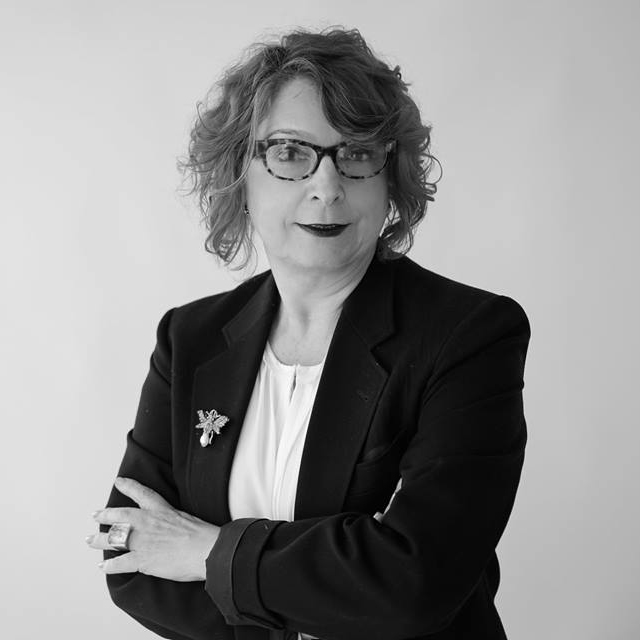
Maria Amélia Bulhões traz para a comissão julgadora conexões internacionais e a sua forte ligação com instituições como a Associação Brasileira de Críticos de Arte (ABCA), da qual é a atual Presidente, e da Associação Internacional de Críticos de Arte (AICA), da qual é membro do Conselho. Professora titular do Instituto de Artes da Universidade Federal do Rio Grande do Sul (UFRGS), Maria Amélia Bulhões é Doutora em História Social na Universidade de São Paulo (1990), com Estágio Sênior nas Universidades de Paris I, Sorbonne e Universidade Politécnica de Valencia. O foco de seu trabalho é a arte contemporânea em suas relações sistêmicas, sua pesquisa atual tem ênfase nas articulações desta produção com a internet. Autora e editor da Revista Porto Arte (1992-2013). Seus livros ais recentes são: As novas regras do jogo: o sistema da arte no Brasil (2014) e Web arte e Poéticas do território (2011), manteve durante três anos uma coluna semanal sobre artes visuais no jornal online Sul 21. Foi diretora do Centro Cultural Brasileiro na Venezuela, Caracas (2003). Implementou e foi coordenadora do Programa de Pós-Graduação em Artes Visuais da UFRGS (1992-95). Curadora da Pinacoteca Barão de Santo Ângelo (1998-2000) e curadora para a seção de web art da Bienal Internacional de Curitiba (2013).
Maria Amélia Bulhões brings to the jury committee international connections and her strong connection with institutions such as the Brazilian Association of Art Critics (ABCA), which is the current President, and the the International Association of Art Critics (AICA) of which she is a Council member. Titular Professor at the Arts Institute of Federal University of Rio Grande do Sul (UFRGS), Maria Amélia Bulhoes has a Ph.D. in Social History at University of São Paulo (1990) and was a Research Visitor at the University Paris I-Sorbonne and Universitty Politecnic of Valencia. She attempts to understand the development of contemporary art, art system and internet . Writer and Editor of Porto Arte Magazine (1992-2013). Her most recent books are As novas regras do jogo: o sistema da arte no Brasil (The new rules of the game: the art system in Brazi), 2014, Web art e Poéticas do Território (Web art and poetics of the territory), 2011. She was director of Brazilian Cultural Center in Venezuela, Caracas (2003), and she implemented and was firts coordenador of the Pos Graduation Program of Visual Arts at UFRGS (1992-95). Curator of the Pinacoteca Barão de Santo Ângelo (1998-2000) and for the web art section of Curitiba International Biennial (2013).
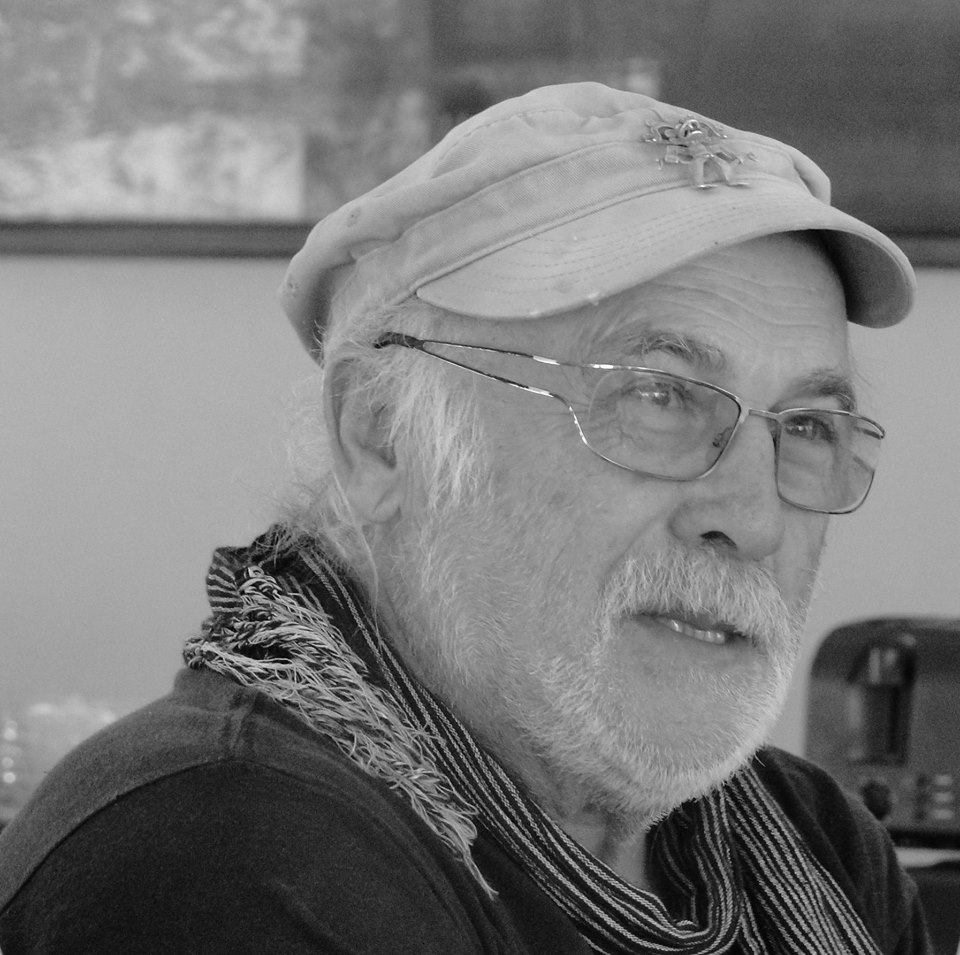
Irineu Garcia é o grande idealizador do Instituto Yvy Maraey e atual presidente da organização. É artista e arquiteto, com participação em eventos de arte, simpósios e exposições na Argentina, China, Alemanha, Estônia, EUA, França, Índia, Itália, México, Uruguai, ente outros. Deu aula na universidade e ministra workshops sobre o fazer da arte contemporânea. Trabalha com foco no maio ambiente e suas interações, com uso de resíduos e materiais naturais.
Irineu Garcia is the great encourager of Yvy MaraeyInstitute project and currently is the president of the organization. He is anartist and architect with participation in art events, symposia and exhibitionsin Argentina, China, Germany, Estonia, USA, France, India, Italy, Mexico,Uruguay, among others. He taught at the university and teaches workshops on themaking of contemporary art. It works with focus on the environment and itsinteractions, with the use of waste and natural materials.
